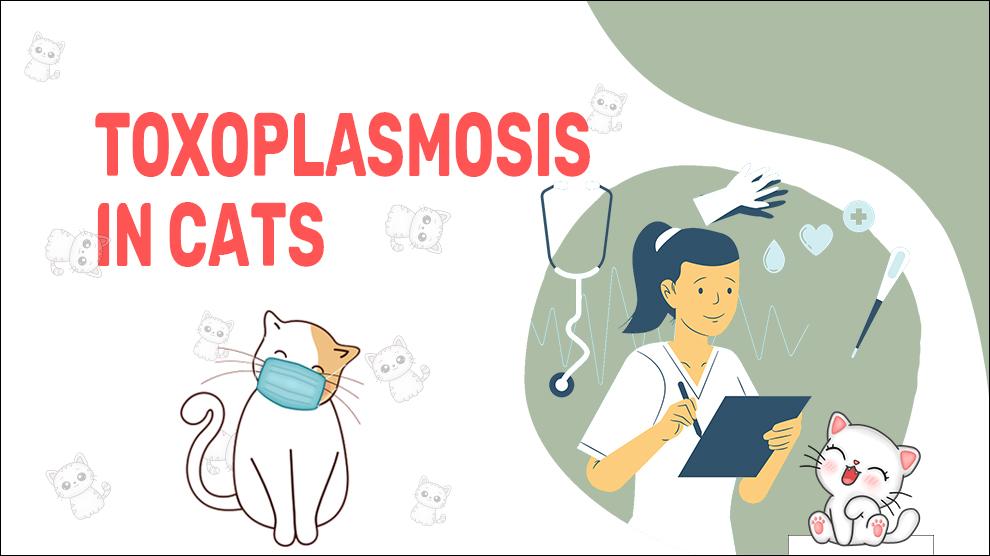What Is Toxoplasmosis In Cats?
Toxoplasmosis is a parasitic disease caused by the protozoan Toxoplasma Gondii. While this disease can affect a variety of animals, including humans, it is particularly common in cats.
In fact, cats are the definitive host for T. Gondii, meaning that they are the only animals capable of shedding the infectious form of the parasite in their feces.
Toxoplasmosis can be a serious health concern for both cats and humans, especially for those with weakened immune systems.
Clinical Signs Of Toxoplasmosis In Cats
The symptoms of toxoplasmosis in cats can range from mild to severe. Some cats may not display any symptoms at all.
However, common symptoms of toxoplasmosis in cats include lethargy, lack of appetite, weight loss, vomiting, diarrhea, fever, and neurological issues such as seizures and difficulty walking.
In severe cases, the infection can lead to blindness, deafness, and even death.
- Fever
- Fatigue
- Difficulty Chewing
- Difficulty Breathing
- Yellow Skin
- Loss Of Vision
- Loss Of Balance
- Discoloration Of Eyes
- Ear Twitching
- Changes In Behavior
- Lack Of Coordination
- Circling
- Head Tilt
- Redness In Eyes
- Swelling In Eyes
Treatment Options For Toxoplasmosis In Cats
Treatment for toxoplasmosis in cats typically involves the use of antibiotics to kill the parasite.
In some cases, cats may require hospitalization and supportive care, such as IV fluids, to help them recover.
Cats with neurological symptoms may require additional treatment, such as anti-seizure medication.
It is important to note that there is no cure for toxoplasmosis, and infected cats can potentially spread the disease to other cats and humans even after treatment.
Home Remedies For Toxoplasmosis In Cats
There are no home remedies for toxoplasmosis in cats. It is important to seek veterinary care as soon as possible if you suspect your cat may be infected.
How To Prevent Toxoplasmosis In Cats?
To prevent toxoplasmosis in cats, owners should take several precautions. Firstly, it is important to keep cats indoors to reduce their exposure to contaminated feces and infected prey.
Cat owners should also provide their cats with clean litter boxes and should scoop them daily. In addition, cat owners should avoid feeding their cats raw or undercooked meat.
Pregnant women and individuals with weakened immune systems should avoid contact with cat feces or wear gloves and wash their hands thoroughly after handling litter boxes.
Affected Cat Breeds Of Toxoplasmosis
Toxoplasmosis can affect cats of any breed.
Causes For Toxoplasmosis In Cats
Causes:
Toxoplasmosis is caused by the protozoan Toxoplasma Gondii. The parasite can be found in the feces of infected cats, and can also be present in raw or undercooked meat.
Cats become infected with T. Gondii by ingesting contaminated food or water, or by coming into contact with infected feces.
The parasite can also be transmitted from a pregnant cat to her kittens, or from an infected mother to her developing fetus.
When To See A Vet For Toxoplasmosis In Cats?
If you suspect that your cat may have toxoplasmosis, it is important to consult a veterinarian as soon as possible.
Toxoplasmosis is a parasitic infection that can affect cats and humans. The symptoms in cats may vary but can include lethargy, loss of appetite, fever, and respiratory issues.
Kittens and cats with weakened immune systems are especially vulnerable. Prompt veterinary attention is crucial to diagnose and treat the infection effectively.
The vet will conduct a physical examination, perform laboratory tests, and may prescribe medications to combat the infection.
Additionally, they can provide guidance on preventing transmission to humans and offer advice on managing your cat's environment.
Food Suggestions For Toxoplasmosis In Cats
To prevent toxoplasmosis in cats, it is important to avoid feeding them raw or undercooked meat. Commercially prepared cat food is a safe and convenient option for providing your cat with a balanced diet.
Conclusion
Toxoplasmosis is a common parasitic disease that can affect cats and other animals, as well as humans.
It is caused by the Toxoplasma Gondii parasite and can have a range of symptoms, from mild to severe, depending on the immune system of the infected individual.
While some cases may go unnoticed, toxoplasmosis can lead to serious health complications, particularly for pregnant women and individuals with weakened immune systems.
Proper prevention measures, such as regular vet check-ups, avoiding contaminated food and litter boxes, and practicing good hygiene, can help reduce the risk of infection and ensure the health and well-being of cats and their human companions.











